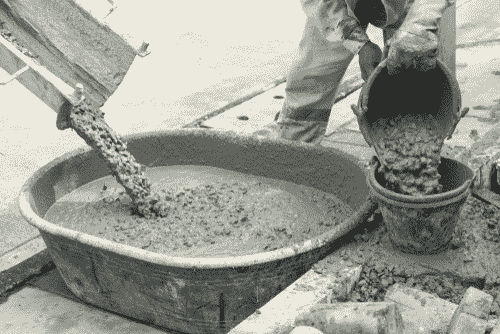Unveiling the Eco-Friendly Advantages of Using Recycled Concrete in Sustainable Building Practices
In the realm of lasting building and construction techniques, the application of recycled concrete stands as a pivotal yet frequently undervalued resource. Beyond its standard applications, recycled concrete deals a myriad of green benefits that prolong far beyond the boundaries of typical building and construction products. From minimizing ecological impact to boosting cost-efficiency, the ramifications of incorporating recycled concrete in sustainable structure practices are significant. This flexible product not only addresses pushing ecological issues but likewise presents a viable remedy to the difficulties faced by the construction sector at big.
Ecological Advantages
By including recycled concrete into building and construction methods, there is a substantial decrease in the requirement for new raw products, leading to conservation of all-natural sources. In addition, the use of recycled concrete reduces the amount of waste being sent out to land fills, consequently reducing ecological pollution and alleviating the strain on land fill capabilities (Concrete).

In comparison, recycled concrete has a lower carbon impact as it decreases the need for new concrete manufacturing. Generally, the environmental advantages of utilizing recycled concrete are considerable and play an important role in advertising environmentally friendly building and construction techniques.
Cost-Efficiency
Achieving cost-efficiency is a critical factor to consider when evaluating the usage of recycled concrete in building and construction jobs. Among the crucial benefits of using recycled concrete is its cost-effectiveness contrasted to typical concrete. The manufacturing of recycled concrete involves less power and sources as it utilizes existing products, decreasing the total task costs dramatically. Additionally, the accessibility of recycled concrete in your area can further reduce transport expenditures, making it a more economical selection for building jobs.
In addition, the use of recycled concrete can result in cost savings in garbage dump expenses by diverting concrete waste from disposal websites. This not just lowers the environmental impact however likewise eliminates the costs associated with waste removal. The sturdiness and efficiency of recycled concrete are equivalent to conventional concrete, ensuring that cost savings do not endanger the high quality of the building.
Toughness and Toughness
Taking into consideration the considerable cost-efficiency advantages of using recycled concrete, it is crucial to analyze its toughness and stamina in building applications. Recycled concrete deals equivalent, otherwise premium, toughness and toughness residential or commercial properties to traditional concrete. Via innovations in handling techniques and top quality control, recycled concrete can satisfy or exceed the performance requirements of conventional concrete. The procedure of recycling concrete entails squashing, sorting, and evaluating old concrete to create accumulations that can be utilized in brand-new building projects. These recycled aggregates are qualified of supplying satisfying compressive stamina, durability, and lasting performance.
:max_bytes(150000):strip_icc()/in-depth-look-at-concrete-flooring-1314684-02-8fdb599f92a747ed94ef5b96110abfc1.jpg)
Waste Decrease
Reliable waste decrease practices play a crucial function in the lasting application of resources within the building sector. Waste reduction is an essential advantage that adds significantly to environmental conservation when it comes my link to utilizing recycled concrete. Typical construction methods typically produce considerable amounts of waste, specifically in the type of concrete debris from demolition sites. By integrating recycled concrete into building jobs, this waste is repurposed and drawn away from land fills, decreasing the overall environmental impact of construction activities.
Furthermore, the use of recycled concrete can lead to cost savings for building projects, as it is often more budget friendly than sourcing and carrying new materials - Concrete. In final thought, waste reduction through the use of recycled concrete is an essential component of sustainable building practices that benefits both the building and the atmosphere market as a whole.
Power Preservation
When it comes to utilizing recycled concrete in building, substantial energy cost savings are accomplished compared to typical concrete manufacturing. The process of producing recycled concrete involves squashing and recycling existing concrete materials, which eats less energy than mining, More hints handling, and carrying raw materials for new concrete manufacturing.
Final Thought
To conclude, the utilization of recycled concrete in sustainable building and construction techniques provides numerous ecological advantages, cost-efficiency, toughness, stamina, waste reduction, and power conservation. By incorporating recycled concrete right into building projects, we can add to a more eco-friendly and sustainable future. It is necessary for the construction market to focus on making use of recycled materials to help in reducing the ecological impact of building and construction activities.
One of the vital advantages of utilizing recycled concrete is its cost-effectiveness compared to standard concrete.Furthermore, the usage my link of recycled concrete can lead to savings in garbage dump expenses by diverting concrete waste from disposal websites. The sturdiness and efficiency of recycled concrete are comparable to traditional concrete, making certain that expense financial savings do not compromise the high quality of the building and construction.
